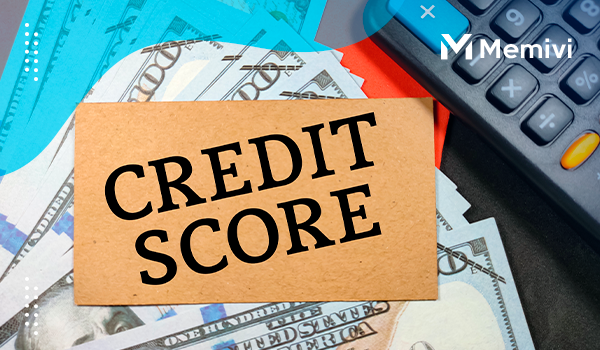
Credit scores play a significant role in our financial lives. They determine the amount of credit we can get, the interest rates we’re offered, and even our ability to rent an apartment or get a job. Despite this important role, many people are unsure of how credit scores work and how they can impact their lives.
It’s time to demystify credit scores. In this post, we’ll break down the mechanics of credit scores and explain how they are calculated. We’ll also discuss the various factors that can impact your credit score, both positively and negatively. Armed with this knowledge, you’ll be better equipped to manage your credit score and make informed decisions about your financial future.
What is a credit score and why does it matter?
Understanding what a credit score is and why it matters is crucial for anyone who wants to navigate the world of personal finance. Simply put, a credit score is a numerical representation of an individual’s creditworthiness. It is a three-digit number that helps lenders, landlords, and even employers assess the risk involved in extending credit or entering into a financial agreement.
Credit scores are calculated based on various factors, including payment history, credit utilization, length of credit history, types of credit used, and recent credit inquiries. These factors are then analyzed by credit reporting agencies, such as Equifax, Experian, and TransUnion, who generate credit reports and assign corresponding credit scores.
The significance of a credit score lies in its ability to influence financial opportunities. A high credit score indicates a strong credit history, responsible financial behavior, and a lower risk of defaulting on loans or payments. This can open doors to favorable interest rates, higher credit limits, and better loan terms. On the other hand, a low credit score can limit access to credit, result in higher interest rates, and even impact one’s ability to secure housing or employment.
How credit scores are calculated: The role of credit bureaus and scoring models
Understanding how credit scores are calculated is crucial in demystifying this aspect of personal finance. Credit bureaus play a significant role in the process, as they are responsible for collecting and maintaining credit information on individuals. The most common credit bureaus are Equifax, Experian, and TransUnion. These bureaus gather data from various sources, including lenders, credit card companies, and public records.
The information collected includes payment history, credit utilization, length of credit history, types of credit used, and any negative marks such as delinquencies or bankruptcies. Once the credit bureaus have this data, they use scoring models to calculate credit scores.
The most widely used scoring model is the FICO score, developed by the Fair Isaac Corporation. Other scoring models, such as VantageScore, are also used by some lenders. These scoring models analyze the credit information from the bureaus and assign a numerical value to reflect an individual’s creditworthiness. Factors such as payment history, amounts owed, length of credit history, new credit inquiries, and credit mix are weighed differently in the calculation process.
Common misconceptions about credit scores: Debunking myths and providing accurate information
Credit scores can often be a confusing topic, with many misconceptions floating around. In this section, we aim to debunk some of the most common myths and provide accurate information to help you better understand credit scores.
Myth #1: Closing unused credit accounts will improve your credit score. Contrary to popular belief, closing unused credit accounts can actually have a negative impact on your credit score. This is because it reduces your overall available credit and can increase your credit utilization ratio, which is a key factor in determining your creditworthiness. Instead of closing accounts, consider keeping them open and using them responsibly to maintain a healthy credit profile.
Myth #2: Checking your credit score will lower it. Many people are hesitant to check their credit score out of fear that it will lower their score. However, this is far from the truth. When you check your own credit score, it is considered a soft inquiry and has no impact on your score. It is only when lenders or creditors make hard inquiries, typically when you apply for credit, that it can have a temporary impact on your score.
Myth #3: Paying off debts will immediately improve your credit score. While paying off debts is a responsible financial move, it may not have an immediate positive impact on your credit score. Credit scores consider various factors, including payment history, credit utilization, length of credit history, and more. It takes time for these positive actions to reflect in your credit score. However, consistently making on-time payments and reducing your overall debt will eventually lead to an improvement in your credit score over time.
Myth #4: Having a high income guarantees a high credit score. Your income is not a direct factor in determining your credit score. Your credit score is based on your credit history, payment behavior, and other credit-related factors, not how much money you earn. It’s possible to have a high income but a low credit score if you have a history of late payments or high credit card utilization. On the flip side, someone with a lower income but a strong credit history can have a higher credit score.
Tips for improving your credit score: Best practices for maintaining a healthy credit profile

Maintaining a healthy credit profile is essential for financial stability and future opportunities. While credit scores may seem complicated, there are several best practices you can follow to improve and maintain a good credit score.
- Firstly, it’s crucial to pay your bills on time. Late or missed payments can have a significant negative impact on your credit score. Set up automatic payments or reminders to ensure you never miss a due date. Your payment history is one of the most critical factors affecting your credit score, so consistently paying your bills on time is key.
- Secondly, keep your credit utilization ratio low. This ratio represents the amount of credit you are using compared to your total available credit. Ideally, you should aim to keep your credit utilization below 30%. By managing your credit responsibly and using it sparingly, you demonstrate to lenders that you are a low-risk borrower.
- Another tip is to avoid opening multiple new credit accounts within a short period. Each time you apply for credit, a hard inquiry is made on your credit report, which can temporarily lower your score. If you do need to open a new account, do so sparingly and only when necessary.
- Additionally, maintaining a diverse mix of credit types can positively impact your credit score. Lenders like to see a responsible handling of different types of credit, such as credit cards, loans, and mortgages. This shows that you can manage various financial responsibilities effectively.
- Regularly reviewing your credit report is also essential. By checking for any errors or inaccuracies, you can address them promptly and prevent them from negatively impacting your credit score. You are entitled to a free credit report every year from each of the three major credit reporting agencies, so make use of this opportunity.
How to check your credit score: Utilizing free resources and monitoring services?
Checking your credit score is an essential step in understanding your financial health and making informed decisions. Fortunately, there are several free resources and monitoring services available to help you access and track your credit score.
One popular option is to utilize websites that offer free credit score checks. These platforms allow you to input your personal information securely and receive your credit score instantly. They provide a detailed breakdown of the factors influencing your credit score, such as payment history, credit utilization, length of credit history, and more. With these insights, you can gain a comprehensive understanding of where you stand financially.
Final Thoughts
By breaking down the components that make up your credit score and explaining how different factors can affect it, we aimed to empower you with the knowledge needed to make informed financial decisions. Remember, a good credit score can open doors to better interest rates, loan approvals, and more favorable financial opportunities. Armed with this understanding, you are now equipped to take control of your credit and work towards building a stronger financial future.


 Unlocking the Potential: Understanding Suryoday Small Finance Bank’s Revised Fixed Deposit Interest Rates <p class='sec-title' style='line-height: normal; font-weight: normal;font-size: 16px !important; text-align: left;margin-top: 8px;margin-bottom: 0px !important;'> Suryoday Small Finance Bank's Revised Fixed Deposit Interest Rates - Exploring the Changes, Benefits of Fixed Deposits, and Tips for Maximizing Returns. </p>
Unlocking the Potential: Understanding Suryoday Small Finance Bank’s Revised Fixed Deposit Interest Rates <p class='sec-title' style='line-height: normal; font-weight: normal;font-size: 16px !important; text-align: left;margin-top: 8px;margin-bottom: 0px !important;'> Suryoday Small Finance Bank's Revised Fixed Deposit Interest Rates - Exploring the Changes, Benefits of Fixed Deposits, and Tips for Maximizing Returns. </p>  Navigating the Tax Implications: Gifting Stocks to Your Spouse <p class='sec-title' style='line-height: normal; font-weight: normal;font-size: 16px !important; text-align: left;margin-top: 8px;margin-bottom: 0px !important;'> Navigating Tax Implications and Financial Benefits. Learn the Basics, Tax Considerations, and Strategies for a Smooth and Informed Asset Transfer. </p>
Navigating the Tax Implications: Gifting Stocks to Your Spouse <p class='sec-title' style='line-height: normal; font-weight: normal;font-size: 16px !important; text-align: left;margin-top: 8px;margin-bottom: 0px !important;'> Navigating Tax Implications and Financial Benefits. Learn the Basics, Tax Considerations, and Strategies for a Smooth and Informed Asset Transfer. </p>  Nourishing the Partnership: Exploring the Role of Food Security in India-Morocco Strategic Ties <p class='sec-title' style='line-height: normal; font-weight: normal;font-size: 16px !important; text-align: left;margin-top: 8px;margin-bottom: 0px !important;'> Unveiling the Role of Food Security in Strengthening Ties. Explore Their Collaborative Efforts, Trade Relations, and Future Prospects in Ensuring Food Security. </p>
Nourishing the Partnership: Exploring the Role of Food Security in India-Morocco Strategic Ties <p class='sec-title' style='line-height: normal; font-weight: normal;font-size: 16px !important; text-align: left;margin-top: 8px;margin-bottom: 0px !important;'> Unveiling the Role of Food Security in Strengthening Ties. Explore Their Collaborative Efforts, Trade Relations, and Future Prospects in Ensuring Food Security. </p>